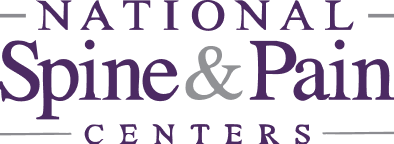Understanding Regenerative Medicine
Modern medicine is moving fast, and regenerative therapies are opening new doors for healing. From restoring damaged tissues to easing chronic pain, these treatments aim to help your body repair itself in ways traditional medicine sometimes can’t. For those facing injuries or degenerative conditions, understanding your options can be empowering.
What Regenerative Medicine Means
Regenerative medicine focuses on repairing, replacing, or regenerating cells, tissues, and organs. It works with your body’s natural healing abilities, using advances in biology and technology to support recovery. Treatments can range from stem cell therapies to tissue engineering and gene therapy, offering new ways to address injuries or chronic conditions without heavy reliance on surgery or long-term medications.
Common Approaches and Techniques
Stem cell therapy is one of the most well-known regenerative treatments. These cells can transform into specialized cells to repair damaged tissues. Tissue engineering creates artificial tissues or organs in a lab, reducing the need for transplants. Disc therapy can correct spinal issues or strengthen your body’s defenses. Each of these approaches is tailored to help you heal more effectively and regain function.
Benefits and Risks
Regenerative therapies can shorten recovery time, reduce pain, and help you regain mobility. For injuries like sports-related damage or chronic conditions like osteoarthritis, these treatments can make a real difference. However, they aren’t without risks. Complications, side effects, or ethical considerations around stem cell use should be discussed thoroughly with your provider before starting treatment.
Preparing for a Consultation
Gather Information
Before meeting a provider, research your options. Reliable medical websites, peer-reviewed studies, and guidance from healthcare professionals are all valuable. Avoid relying solely on anecdotal experiences. Being informed helps you make confident decisions and have productive discussions with your care team.
Ask the Right Questions
During your consultation, ask about the types of therapies offered, success rates, possible side effects, costs, and post-treatment care. Understanding the process and what’s expected will help you feel more in control of your healthcare journey.
Share Your Medical History
Provide your full medical history, including past treatments and current medications. This helps providers determine the best therapies for your situation and ensure your safety throughout treatment.
Choosing the Right Specialist
Research Providers
Look for board-certified specialists with a track record in regenerative therapies. Patient reviews, professional affiliations, and involvement in clinical research can help identify providers who are committed to high-quality care.
Evaluate the Consultation
Your first meeting should give you clarity about your treatment plan. The provider should answer your questions, explain procedures clearly, and help you feel comfortable with the process.
Check Facilities and Support
A clinic’s technology and support services matter. Look for facilities equipped for advanced therapies and follow-up care. Good post-treatment support can make a big difference in your recovery and overall experience.
Financing and Insurance
Understand Costs
Regenerative treatments can vary in price depending on the procedure and technology involved. Request a detailed breakdown so there are no surprises and so you can plan accordingly.
Explore Coverage and Payment Options
Check whether your insurance covers treatments or related procedures. Many clinics also offer payment plans to make care more accessible, and health savings accounts can help offset costs.
Plan Ahead Financially
Consider grants, subsidies, or flexible loans if needed. Financial planning ensures that treatment decisions are based on your health needs, not just cost concerns.
After the Consultation
Review Your Options
Take time to review the information from your consultation. Comparing options or seeking a second opinion can provide clarity and confidence in your next steps.
Create a Personalized Plan
Work with your provider to design a treatment plan that aligns with your health goals and lifestyle. Knowing what to expect helps you commit to the process and improve outcomes.
Prepare for Treatment
Physical preparation may include diet or exercise changes, while mental preparation can help manage anxiety and stress. Support from friends, family, or counseling services can make the journey smoother and more successful.
Regenerative medicine offers a path to recovery and improved quality of life. If you’re considering these treatments, the team at National Spine & Pain Centers is here to guide you.
Contact us today for a consultation and take the first step toward restoring your health and mobility. Call .


.2508191152554.jpg)